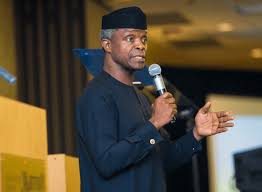One of the leading developmental government institutions in Nigeria today is the Ministry of Transportation. By every standard, this Ministry has worked to be reckoned with in infrastructural development and this is largely due to the visionary and pragmatic approach and leadership provided by the Honourable Minister of Transportation.
One significant project that every part of the country is proud to be associated with is the reactivation of the once comatose rail sector. The strategic intervention of the Minister has brought life back to this mode of transportation. The recent development in the rail sector is revolutionary as strategic areas and locations hitherto without any rail-line are now being connected. The Minister has delivered the Abuja – Kaduna railline through which hundreds of passengers are now conveyed on a daily basis with the state-of-the-art train ahead- of- schedule time line.
The work on the Lagos – Ibadan rail-line is going on steady and will go a long way in reducing the pressure and high rate of deaths and accidents associated with the Lagos – Ibadan highway. Serious work has also commenced on the Port Harcourt – Maiduguri Rail-line. Work on the Lagos – Calabar
Rail line will start before the end of 2018. In the Lagos-Calabar Rail line, every state in the South-South is captured. The Minister’s plan to link all of the country’s state capitals by rail-line is worthy of commendation.
He was also responsible for the giant strides recorded in aviation. The Abuja Airport Terminal, the Murtala Muhammed International Airport New Ultra-modern Terminal, Ikeja, Lagos and three other ultra-modern international airport terminals in major cities, including Port Harcourt, Kano and Enugu are eloquent testimonies of the Honourable Minister’ strategic initiatives and commitments. Nigeria has no doubt experienced a fast pace infrastructural development under the present Minister of Transport and Aviation who has proven to be a thorough bred technocrat, innovator and administrator. He has implemented strategic and iconic projects.
MR BABATUNDE FASHOLA (SAN): FRANK, FOCUSED AND RESULT DRIVEN
It is no doubt that power supply, road and housing constitute great infrastructural resources that define the state of health of a nation. These three key sectors have in the last three years received attention and dynamism that have been alien to it for many years. Under Mr Babatunde Fashola (SAN),
the present Minister for Power, Works and Housing,
Nigeria has no doubt experienced a fast pace infrastructural boost never experienced in recent times.

Fashola’s eye on the big picture and his result oriented approach have seen Nigeria made incremental progress in infrastructure. Today, electricity supplied to Nigerians has risen to an all time high 7,000 Mega Watts. The Federal Government is constructing roads in virtually all the 36 states some of which were through collaborative efforts as well as direct interventions.
The present administration has spent over N300 billion on road construction since coming to power three years ago. The present administration though the Minister has built and expanded essential traffic networks in major cities, including Abuja, Lagos, Uyo and Port Harcourt, through the construction of bridges, highways and regional roads. The construction of the main works, including associated infrastructure, for the Second Niger Bridge and the rehabilitation of the Abuja-Kaduna-Zaria-Kano dual carriageway project are steadily progressing.
Before this administration, there was no functional housing policy but now we have one.








